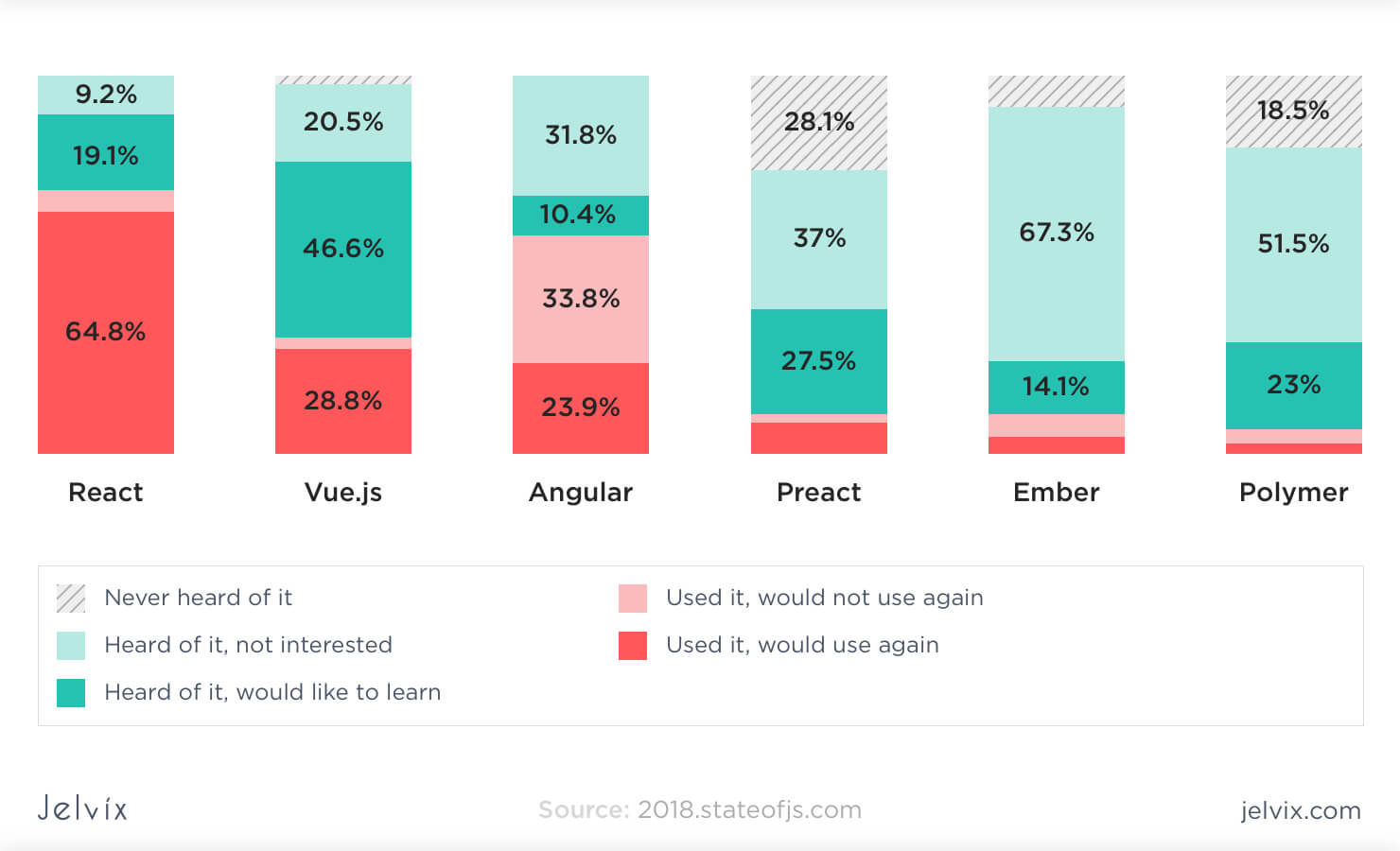Insightful Perspectives
Explore a world of engaging news and informative articles.
JavaScript Frameworks: The Battle of the Titans
Unleash the power of JavaScript frameworks! Dive into the epic battle between the titans and discover which one reigns supreme.
Understanding the Key Differences Between Popular JavaScript Frameworks
When it comes to modern web development, understanding the key differences between popular JavaScript frameworks is essential for making informed decisions about the right tool for your project. Frameworks like React, Angular, and Vue.js each offer unique features that cater to different development needs. For instance, React focuses on building user interfaces through a component-based architecture, which allows for reusable code and enhanced performance. On the other hand, Angular provides a comprehensive solution with two-way data binding and dependency injection, making it suitable for large-scale applications. Meanwhile, Vue.js strikes a balance between the two, offering an approachable learning curve and flexibility while still delivering high performance.
Additionally, React utilizes a virtual DOM, which efficiently updates the UI without reloading the entire page, thereby improving user experience. In contrast, Angular's robust tooling and strong opinion on project structure might appeal to developers who prefer a more conventional approach that promotes maintainability. Vue.js, often praised for its simplicity, allows developers to seamlessly integrate it into existing projects without extensive refactoring. Ultimately, selecting the right JavaScript framework depends on your project's specific requirements, team expertise, and the desired level of scalability.

Which JavaScript Framework Reigns Supreme in 2023?
As we dive into 2023, the landscape of JavaScript frameworks continues to evolve, prompting developers to question: Which JavaScript framework reigns supreme? Leading contenders such as React, Vue.js, and Angular each bring unique strengths to the table. React, backed by Facebook, remains a favorite for its component-based architecture and vast ecosystem, including libraries like Next.js for server-side rendering. Meanwhile, Vue.js attracts those looking for simplicity and flexibility, providing an intuitive experience for developers of all skill levels.
In 2023, you might also consider frameworks like Svelte and Nuxt.js, which have gained traction for their innovative approaches to building user interfaces. Svelte compiles components at build time, offering improved performance by minimizing runtime overhead, while Nuxt.js enhances Vue applications with powerful features such as server-side rendering and static site generation. Ultimately, the decision of which JavaScript framework reigns supreme comes down to specific project requirements and personal preference, making it imperative for developers to stay informed and adaptable in this fast-paced environment.
The Pros and Cons of Top JavaScript Frameworks: A Comprehensive Guide
The landscape of web development has been significantly shaped by various JavaScript frameworks, each offering unique advantages and challenges. Among the most popular frameworks, such as React, Angular, and Vue.js, developers can choose based on their specific project needs. For instance, React is lauded for its component-based architecture and ability to create dynamic user interfaces, while Angular provides a comprehensive solution with its two-way data binding and powerful dependency injection. On the other hand, Vue.js is celebrated for its simplicity and ease of integration into existing projects, making it a favorite for developers looking for a lightweight option.
While the benefits of these frameworks are appealing, it is essential to consider the cons that come with them. Complex learning curves can be a significant barrier, particularly for beginners who may struggle to grasp advanced concepts and best practices. Additionally, the rapid evolution of frameworks can lead to potential compatibility issues, where updates may break existing code or require extensive modifications. Lastly, it is important to note that the choice of a JavaScript framework can impact SEO performance, as frameworks with heavy reliance on JavaScript might hinder search engine crawlers from indexing content effectively. Therefore, choosing the right framework involves a careful balance between benefits and drawbacks, tailored to the specific goals of your project.